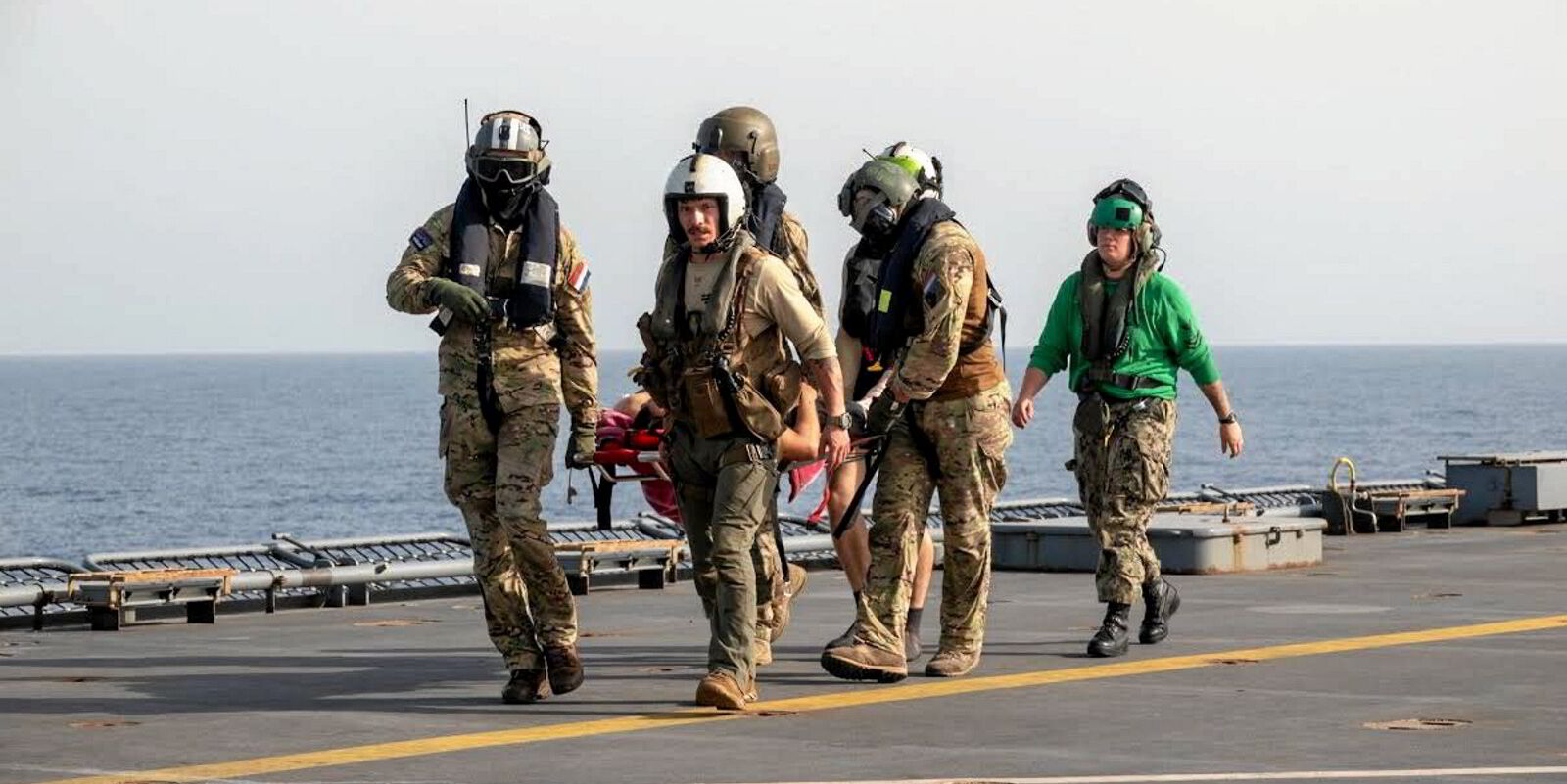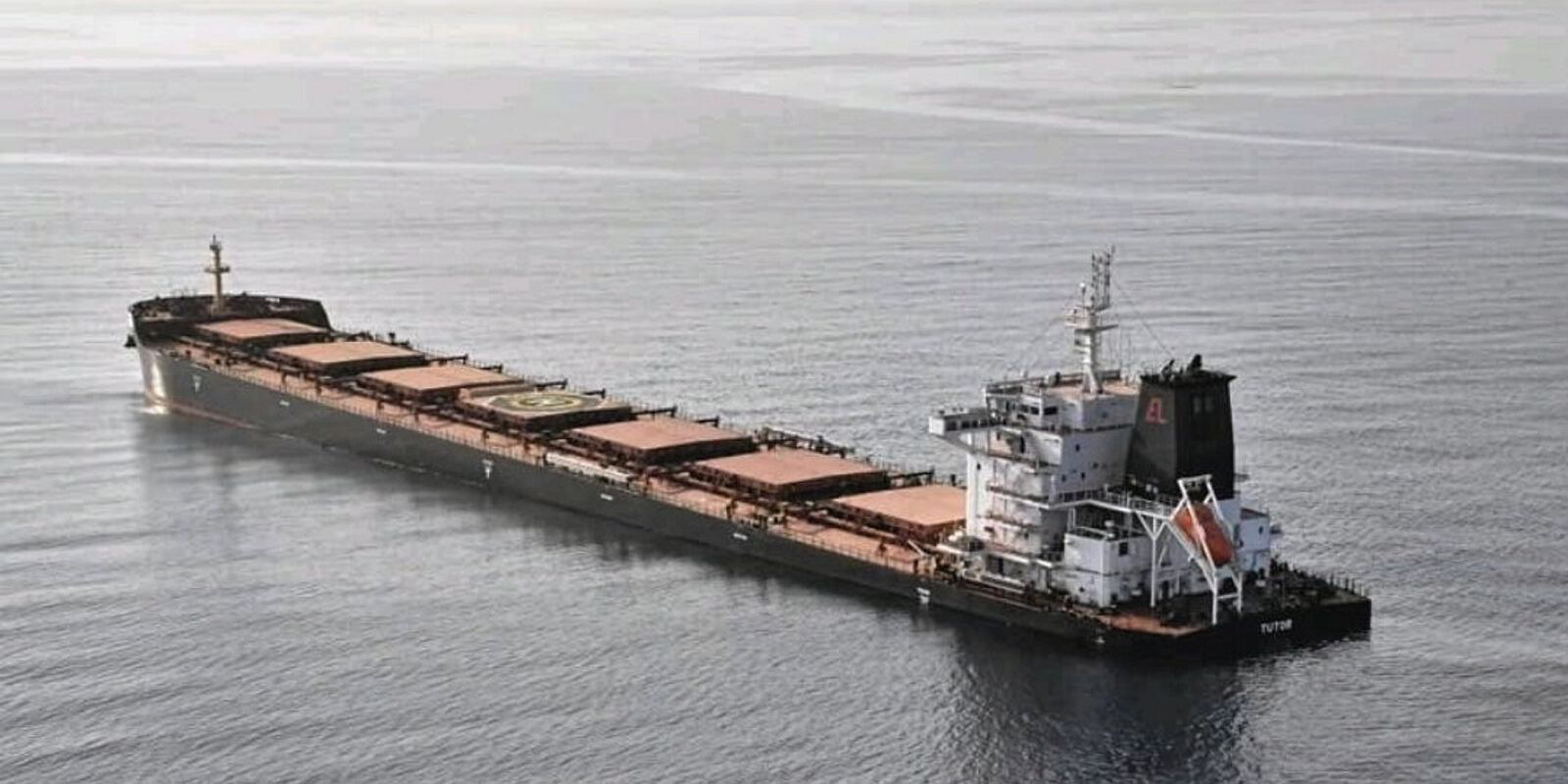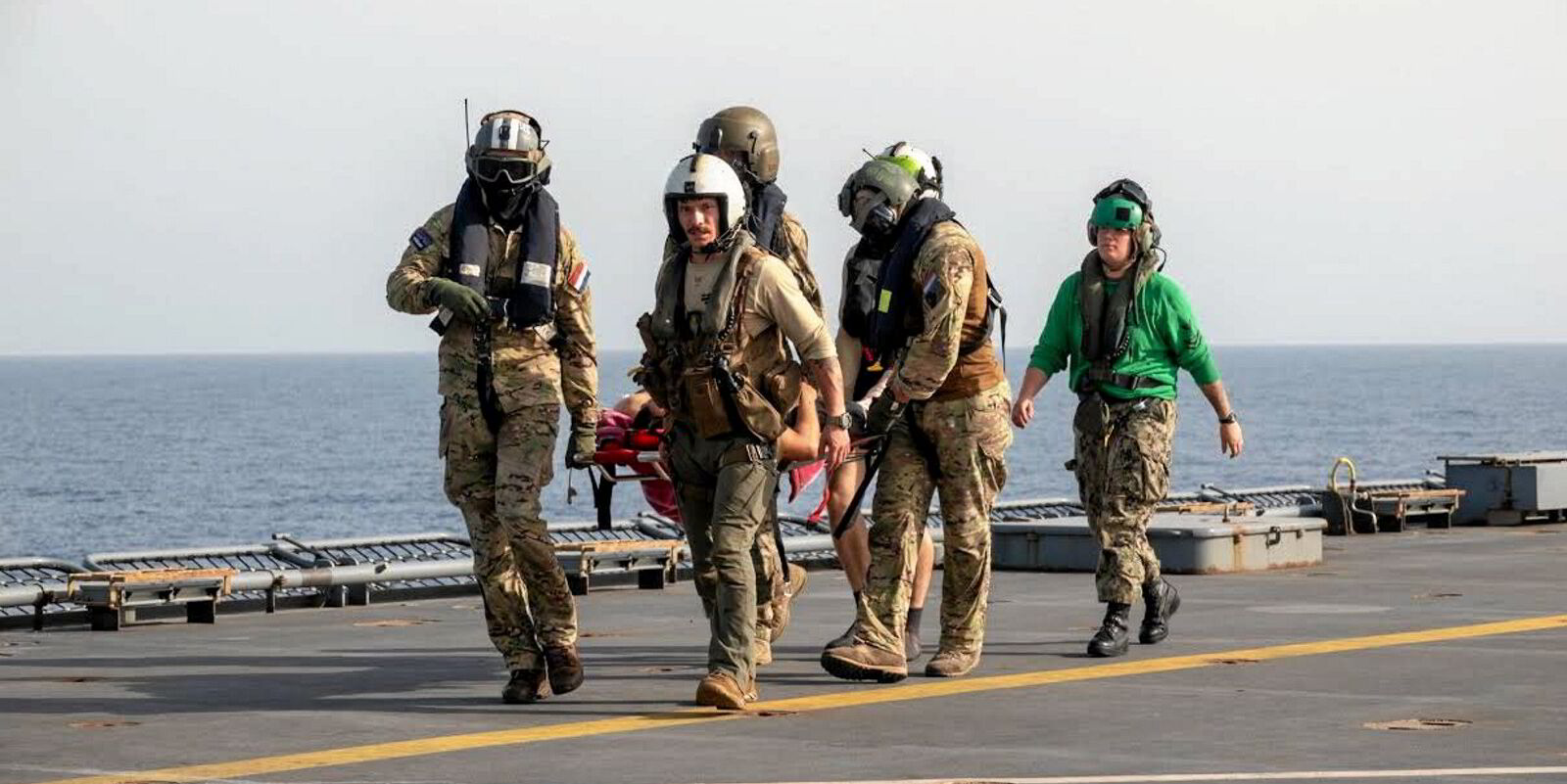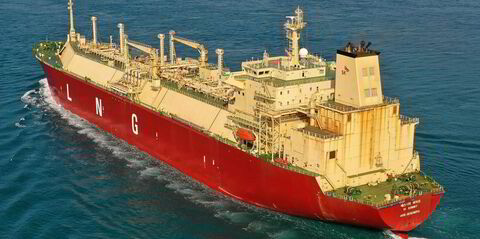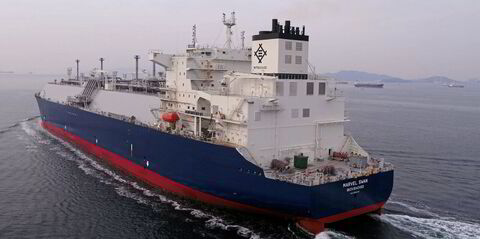A small Ukrainian-owned bulker has been evacuated and is burning out of control and sinking, despite initial reports it had survived a Houthi attack in the Gulf of Aden on Thursday,
The United Kingdom Maritime Trade Operations (UKMTO) reported that the 11,400-dwt Verbena (built 2008), which is carrying wood products, was abandoned by its crew on Saturday and is no longer under command and drifting unlit north-east of Djibouti.
“The master further reports that the vessel is still on fire and sinking,” UKMTO added.
US military authorities confirmed the information later on Saturday and clarified the evacuation took place by the 56,300-dwt Anna-Meta (built 2010) — a bulker operated by Germany’s Blumenthal JMK — that responded to the Verbena’s distress call.
“The crew abandoned ship due to continued fires and an inability to control them,” US Central Command said in a post on X.
According to the US military, an Iranian frigate nearby did not respond to the distress call issued by the Verbena’s seafarers at about 1.45 pm local time.
US Central Command did not make any comment on the state of the vessel.
However, earlier on Saturday the Houthis military spokesman Yahya Saree confirmed the UKMTO report that the Verbena was sinking and said the vessel was targeted with missiles as part of the Yemeni rebels’ campaign to disrupt Israeli trade.
The Palau-flagged ship was en route from Malaysia to Venice in Italy. According to US Central Command, it is carrying wood construction materials.
TradeWinds has reported how a blaze broke out on the Verbena after it was hit by two “unknown projectiles” on Thursday. The Houthis formally claimed responsibility for the strike later on the same day.
A seafarer of the Verbena suffered severe injuries from the incident and had to be evacuated to undergo life-saving surgery. The remaining crew members were believed to have been able to contain the flames, although not to fully extinguish them.
The latest information, however, shows that the Verbena’s situation has since deteriorated, to the point of having to be evacuated on Saturday.
The Verbena is linked to Poland-based Dtschart and affiliate Donbasstransitservice — a Ukrainian company that originated in Mariupol, a city now occupied by Russia. Donbasstransitservice is currently based in Lviv, Ukraine.
The Verbena is not the only vessel to have been evacuated and be in danger of sinking this week. As TradeWinds reported, salvors are underway to rescue the Greek-owned 82,000-dwt bulker Tutor (built 2022), which is drifting in the Red Sea.
The Tutor was the first vessel to be hit by a Houthi sea drone, in the Yemeni rebels’ campaign against shipping that began in mid-November of 2023.
Four seafarers have died as a result of Houthi actions and one ship, the 32,200-dwt bulker Rubymar (built 1997), sunk in March.
The attacks on the Tutor and the Verbena represent a considerable step up of Houthi aggression in the area, which continued on 16 June.
Attempt on Latsco tanker
Early on Sunday, UKMTO related yet another attempted strike against an unidentified vessel in the Bab el-Mandeb strait, 40 miles south of Al Mukha, Yemen.
The master of the ship reported “two explosions in close proximity to the vessel” at 01:30 GMT. Neither the ship nor its crew suffered any damage, however, and they continued their journey.
According to a Houthi statement late on Sunday, the vessel described in the UKMTO incident report appears to have been the 114,900-dwt Captain Paris (built 2014), an LR2 tanker managed by Greece’s Latsco Shipping.
The Captain Paris “was targeted with a number of suitable naval missiles, owing to the violation of [the] ban decision of access to the ports of occupied Palestine by the company that owns that ship”, Saree said.
The Houthis also claimed late on Sunday to have fired missiles at a US destroyer in the Red Sea, as well as airborne drones against a gas carrier underway in the Arabian Sea — the 9,100-cbm Happy Condor (built 2008).
However, there has been no independent corroboration of an attack on the Happy Condor, which is managed by Navigator Gas.
